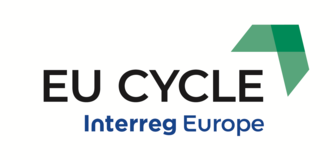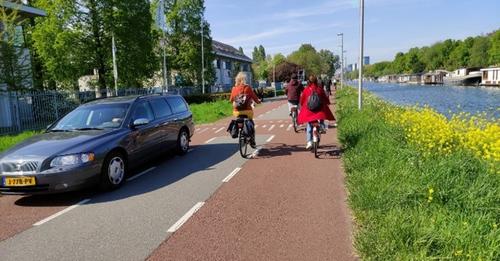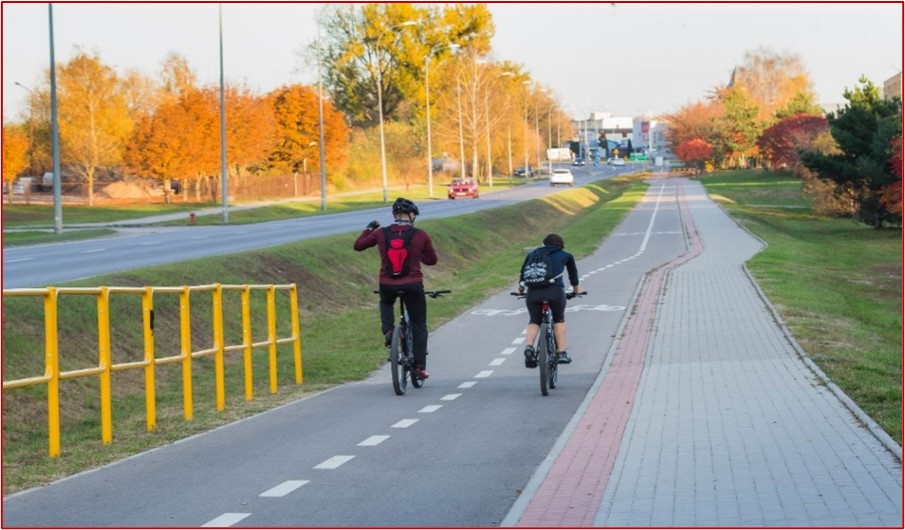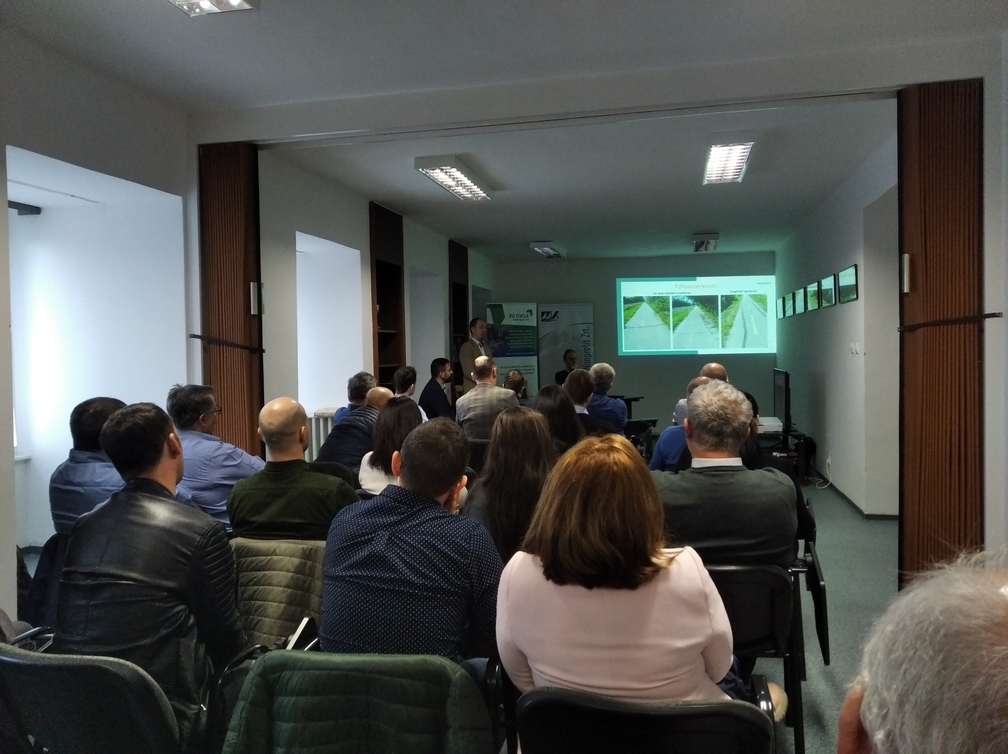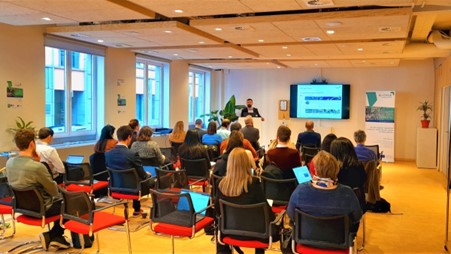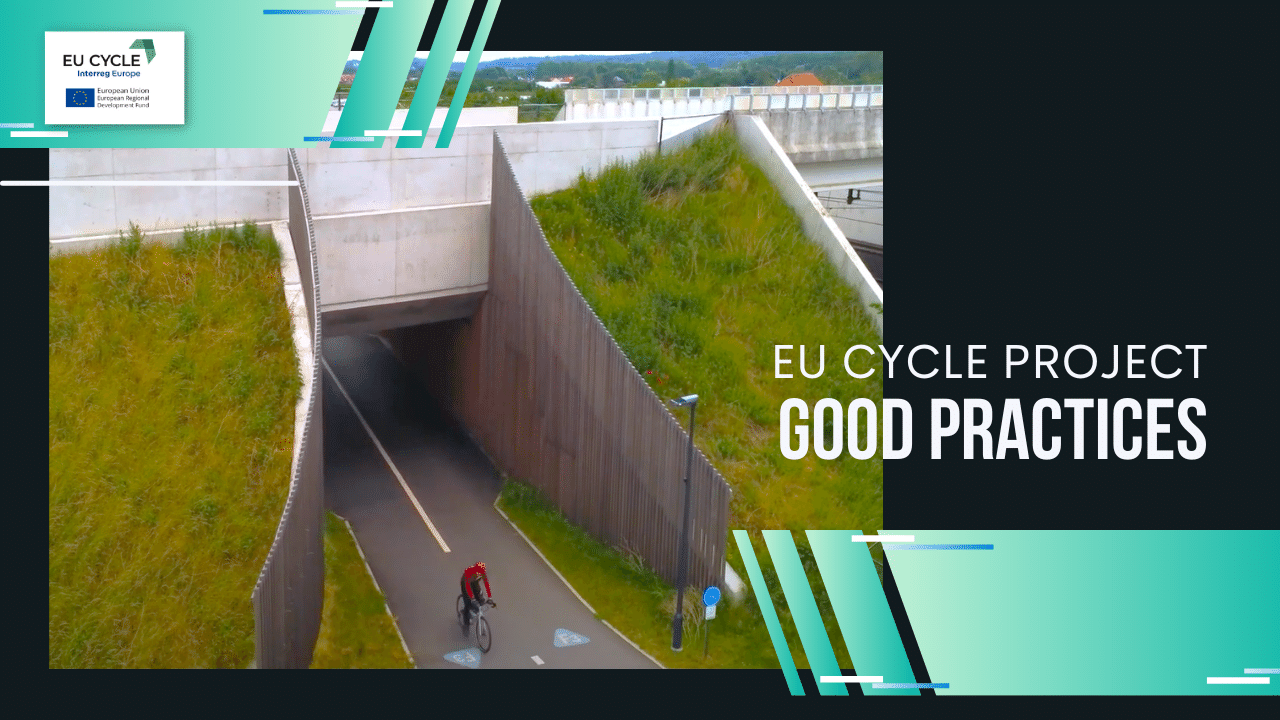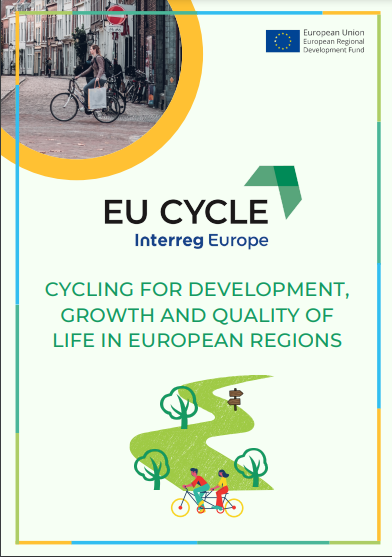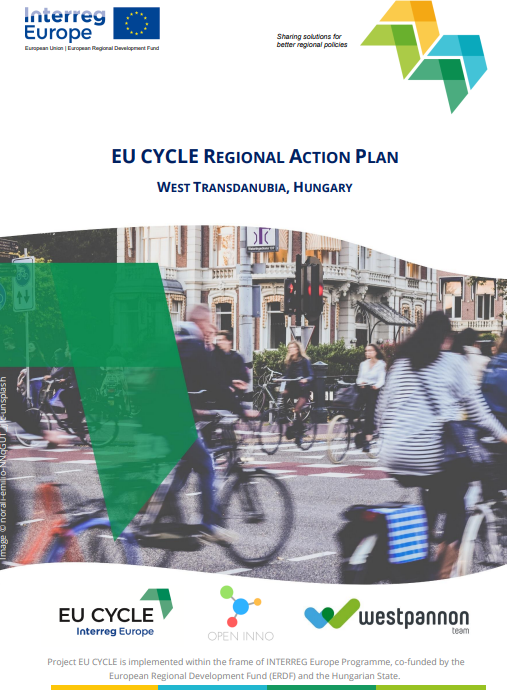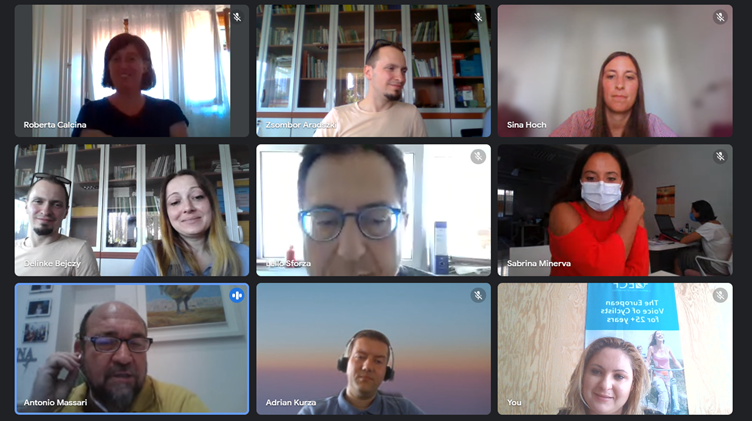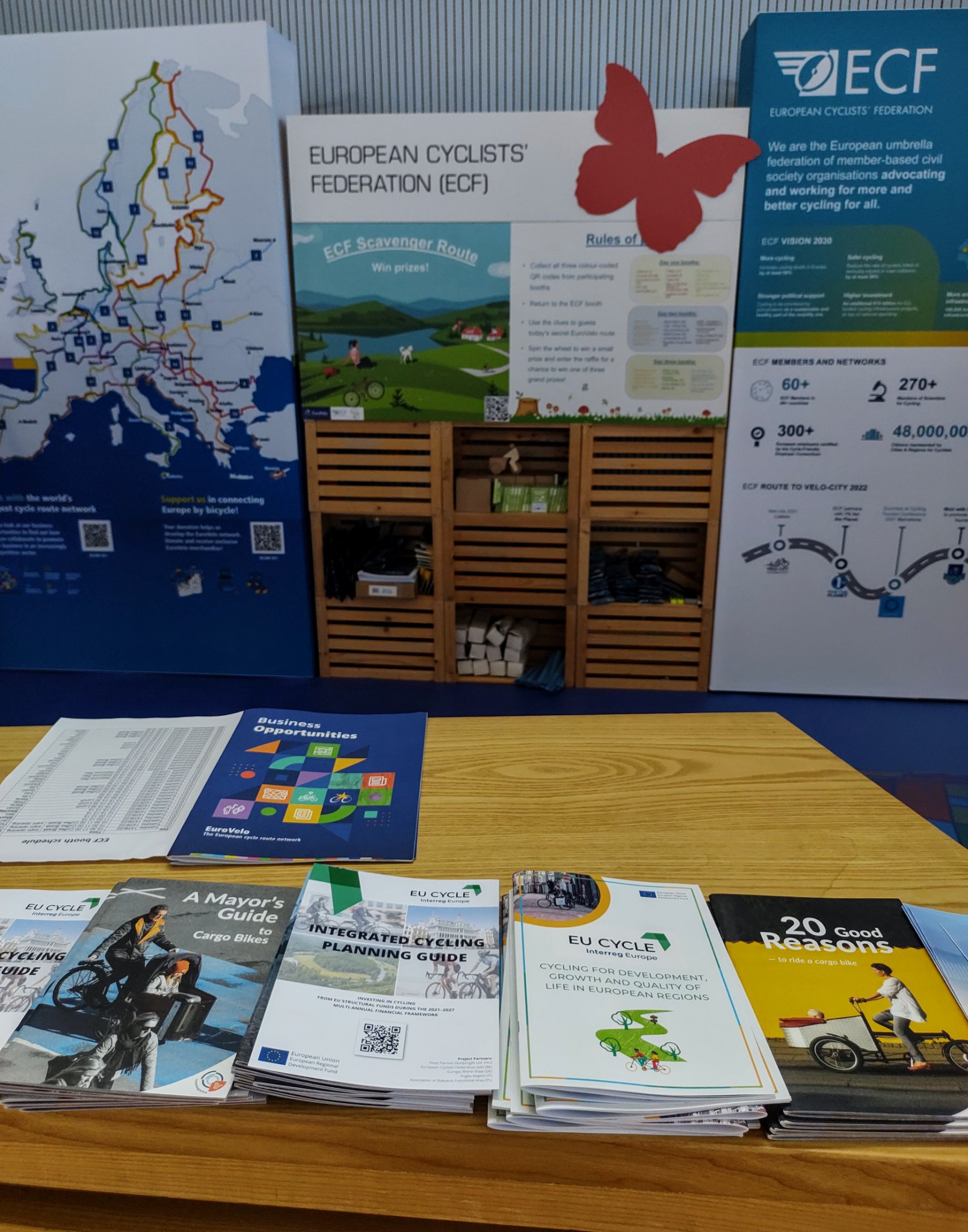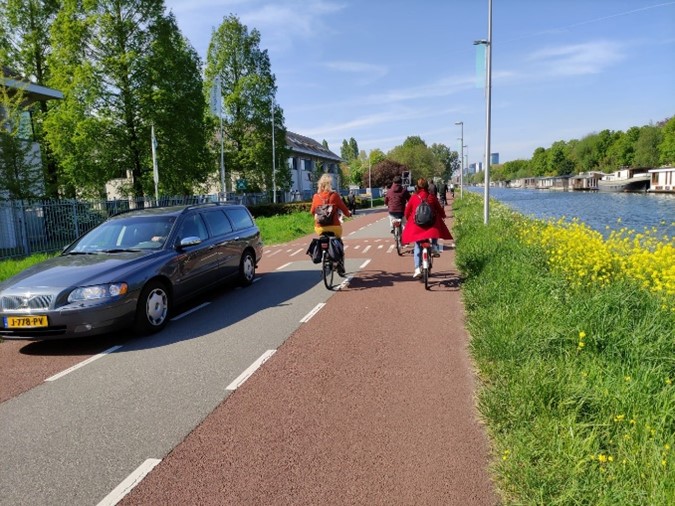On the 18th of June 2021, the third Hungarian Stakeholder Group Meeting of the EU CYCLE project took place online.
The meeting focused on collecting questions and comments regarding the good practices of the online study tour on European Territorial Cooperation, which can be forwarded to the presenters to support their preparation.
Moreover, the participants reviewed the ongoing regional network planning process in the West Transdanubia, providing an opportunity for reflection to the representatives of the Ministry of Finance, in charge of the management of the Territorial and Settlement Development Operational Programme as well as the Centre for Development of Active and Ecotourism, in charge of the coordination of active tourism developments.
The Network Plan of Győr-Moson-Sopron County was summarized by Dr. Petra SZAKONYI, tender expert, assistant professor at Széchenyi University (Faculty of Architecture, Department of Transport Infrastructure and Water Resources Engineering), presenting the complex process of assessing settlement needs and the importance of analyzing accident and traffic data in network design. She emphasized that the number of cyclists is growing dynamically in the county, exceeding the national growth rate, therefore it is essential to continue the developments.

Imre PÁCSONYI, Vice President of Zala County Council mentioned that the basis of their developments is the earlier ‘Zala on Two Wheels’ project, within the framework of which the needs and opportunities have already been assessed. Their plan is focused around three main areas:
1. Expansion of the backbone network
2. Thematic roads routes around cities and attractions, expansion of their infrastructure,
3. Linking commuting and tourism purposes.

The Network Plan of Vas County has been presented by Ervin HORVÁTH, project manager at the Self-Government Office of Vas County. During the elaboration of the plan, the prohibited and accident-prone sections were identified and, in accordance with the plans at the national and regional level, the missing elements of the backbone network were identified taking these into account. The main aim is to create a network of adequate density and quality in the county.

As a closing remark, Tibor POLGÁR, strategic director at West Pannon Non-profit Ltd. expressed that it is gratifying to see awareness in the planning process, which contributes to the success of the new programming period, thus to the improvement of livability in the region.
